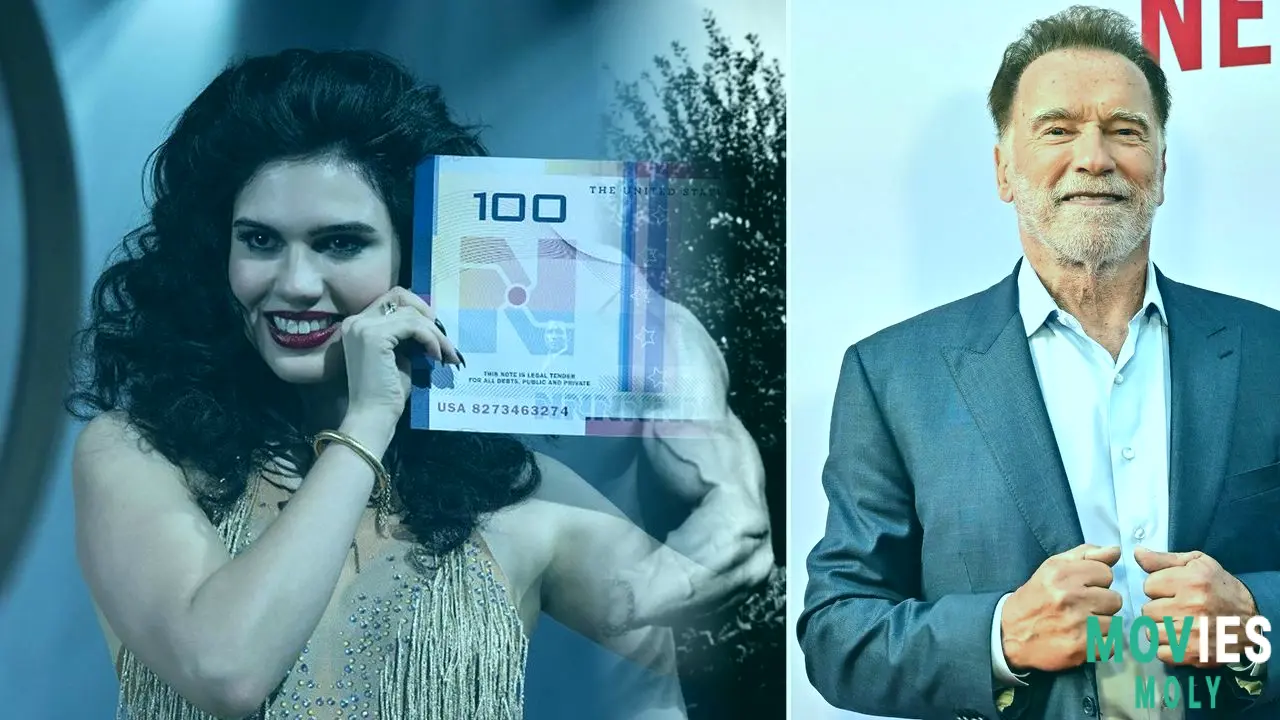Imagine settling into your seat, popcorn in hand, ready for Edgar Wright's fresh take on Stephen King's dystopian classic, The Running Man. Suddenly, a character flashes a crisp hundred-dollar bill, and there it is: a smiling Arnold Schwarzenegger staring back at you. Talk about a surprising cameo! This isn't just a random wink; it's a deliberate, multi-layered tribute that hints at a much deeper connection to cinematic history.
TL;DR- Edgar Wright's 2025 film, The Running Man, is a more faithful adaptation of Stephen King's novel than the 1987 Arnold Schwarzenegger movie.
- Despite its fidelity to the book, the new film packs numerous clever Easter eggs and direct homages to the '87 cult classic, including Arnie's face on the "New Dollars."
- Arnold Schwarzenegger himself gave his blessing and was "very happy" about his cinematic cameo, a playful nod that also connects to Sylvester Stallone's Demolition Man.
Edgar Wright's Vision: Balancing Novel Loyalty with Classic Film Reverence
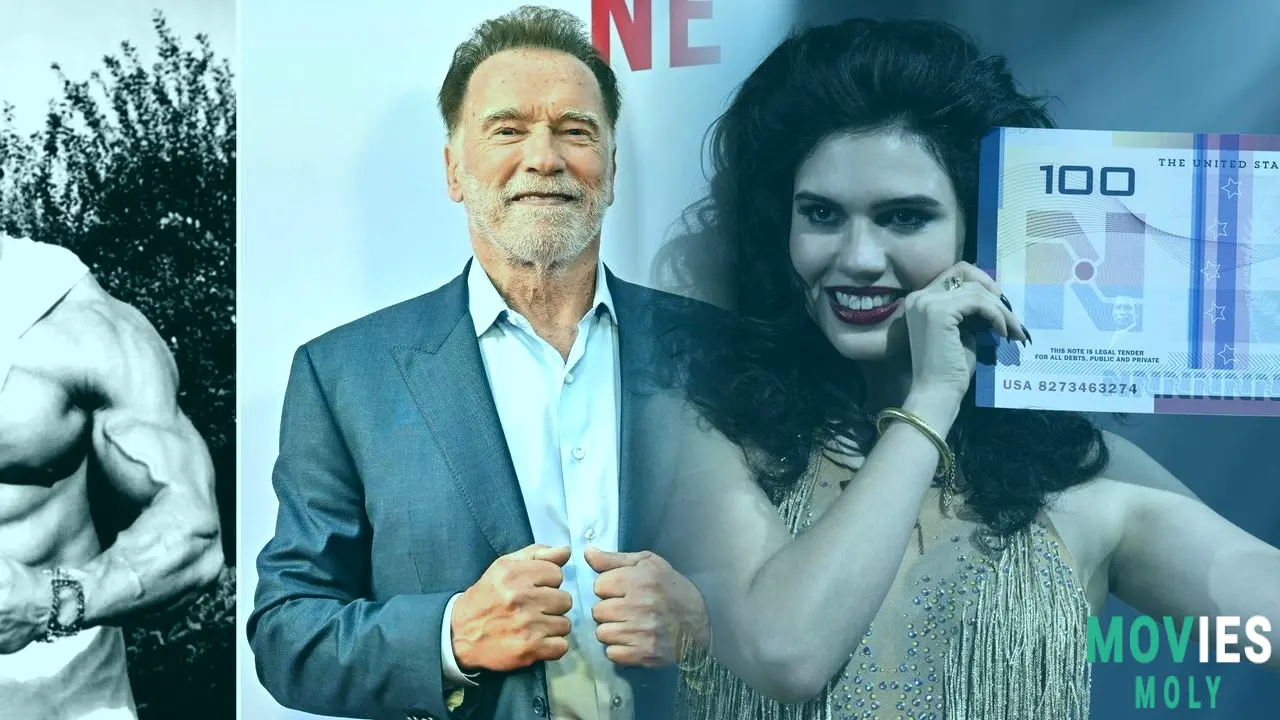
When director Edgar Wright embarked on adapting Stephen King's 1982 novel The Running Man, he set out to create something distinct from the famously campy 1987 film starring Arnold Schwarzenegger. Wright, known for his stylish and fast-paced films like Baby Driver, aimed for an adaptation that would stick much closer to the grim, corporate-fascist dystopia King originally envisioned. Many characters integral to the book, like Michael Cera's nerdy revolutionary Elton Parrakis and Daniel Ezra's rebel Bradley Throckmorton, appear in Wright's version, having been absent from the '87 film. Source: [Joe George, "The Running Man's Arnold Schwarzenegger 'Cameo' Isn't The Only Reference To The Original", November 14, 2025].
However, Wright's commitment to the source material didn't mean ignoring the '87 movie entirely. In fact, he found opportunities to weave in tributes to Paul Michael Glaser’s cult classic, recognizing its passionate following. It’s a delicate balancing act: delivering a fresh, novel-accurate film while still giving a respectful nod to the predecessor that defined the story for many. Wright explained his philosophy to The Hollywood Reporter, noting that "the best remakes of films or the best new adaptations are where you’re doing something radically different with it." Source: [FandomWire, "Edgar Wright explains Arnold Schwarzenegger's cameo in The Running Man", November 13, 2025]. He cited David Cronenberg’s The Fly as an example, a film wildly different from its 1958 original, yet both remain enjoyable. This approach allowed Wright's The Running Man to feel "fresh" because "the source material hadn’t been fully adapted."
Arnold Schwarzenegger's Surprising Monetary Cameo and Its Deeper Meaning
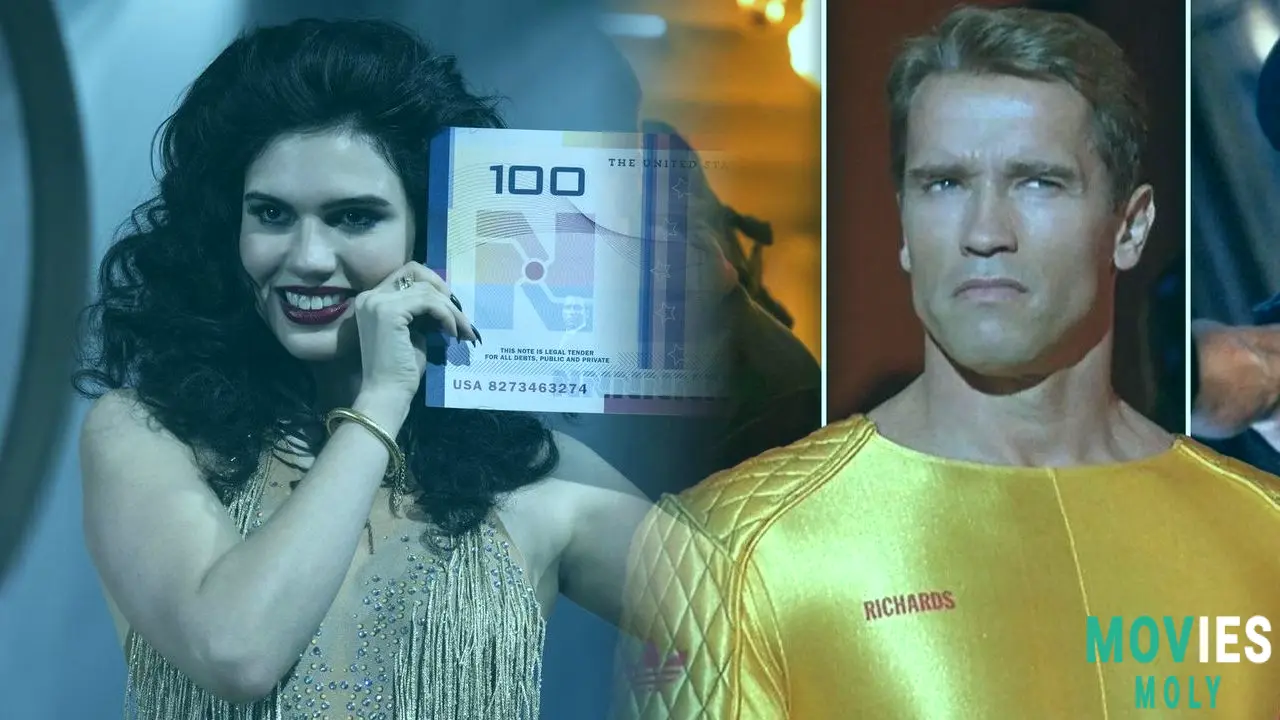
The most talked-about homage is undoubtedly Arnold Schwarzenegger's quasi-cameo. In a scene where Bobby T (Colman Domingo), the charismatic host of the game show, explains the prize money to Ben Richards (Glen Powell) and other contestants, a character flashes "New Dollars." On the $100 bill? A smiling Arnold Schwarzenegger. This isn't just a simple Easter egg; it's a multi-layered inside joke.
Wright, along with co-writer Michael Bacall, conceived of the "new dollars" currency. Bacall had initially written the idea into the script, and Wright saw the perfect opportunity to honor the original film's star. "I thought it was a nice little nod [to the '87 film]," Wright told The Hollywood Reporter. Source: [FandomWire, "Edgar Wright explains Arnold Schwarzenegger's cameo in The Running Man", November 13, 2025]. But the joke goes even deeper: it’s a shared reference with the 1993 sci-fi action film Demolition Man, starring Sylvester Stallone. In that movie, there's a humorous mention of a "President Schwarzenegger." Wright decided to bring that idea to life in his film, creating an "alternate reality where they changed the rules so people born outside the United States could run for president." Source: [FandomWire, "Edgar Wright explains Arnold Schwarzenegger's cameo in The Running Man", November 13, 2025].
Edgar Wright on the Cameo: "I thought it was a nice little nod [to the '87 film]. [Co-writer] Michael Bacall had written the idea about a new currency, 'new dollars,' into the script... It’s a shared joke with the Demolition Man universe. In Demolition Man, they mention President Schwarzenegger, so it’s my little shout out to both Arnie and Daniel Waters [screenwriter of Demolition Man]." — Edgar Wright, as told to The Hollywood Reporter. Source: [FandomWire, "Edgar Wright explains Arnold Schwarzenegger's cameo in The Running Man", November 13, 2025]This clever joke also touches on Schwarzenegger's real-life political career, having served as the Governor of California. Imagining him as president in a fictional dystopia isn't too far-fetched for many. Glen Powell, who takes on the role of Ben Richards, ensured he got Arnold's blessing before filming began. Powell shared that he called Schwarzenegger, who was "very excited and very supportive of this movie." Source: [Popverse, "What Arnold Schwarzenegger thinks of his cameo in the Running Man remake, according to writer/director Edgar Wright", November 06, 2025]. Arnold's reaction to being on the $100 bill? "[Arnold impression] I’m very happy about that. He got the highest denomination of the money." Source: [Popverse, "What Arnold Schwarzenegger thinks of his cameo in the Running Man remake, according to writer/director Edgar Wright", November 06, 2025]. It seems the Governator always wanted The Running Man redone, expressing, "The only movie that I always wanted to have redone of my movies was 'The Running Man.'" Source: [The News Digital, "Arnold Schwarzenegger shares his honest reaction to 'Running Man' remake", November 09, 2025]. He loved Wright's take, adding, "The action was unbelievable and creative." Source: [The News Digital, "Arnold Schwarzenegger shares his honest reaction to 'Running Man' remake", November 09, 2025].
Diving into the Dystopian Details: How the Films Differ and Align
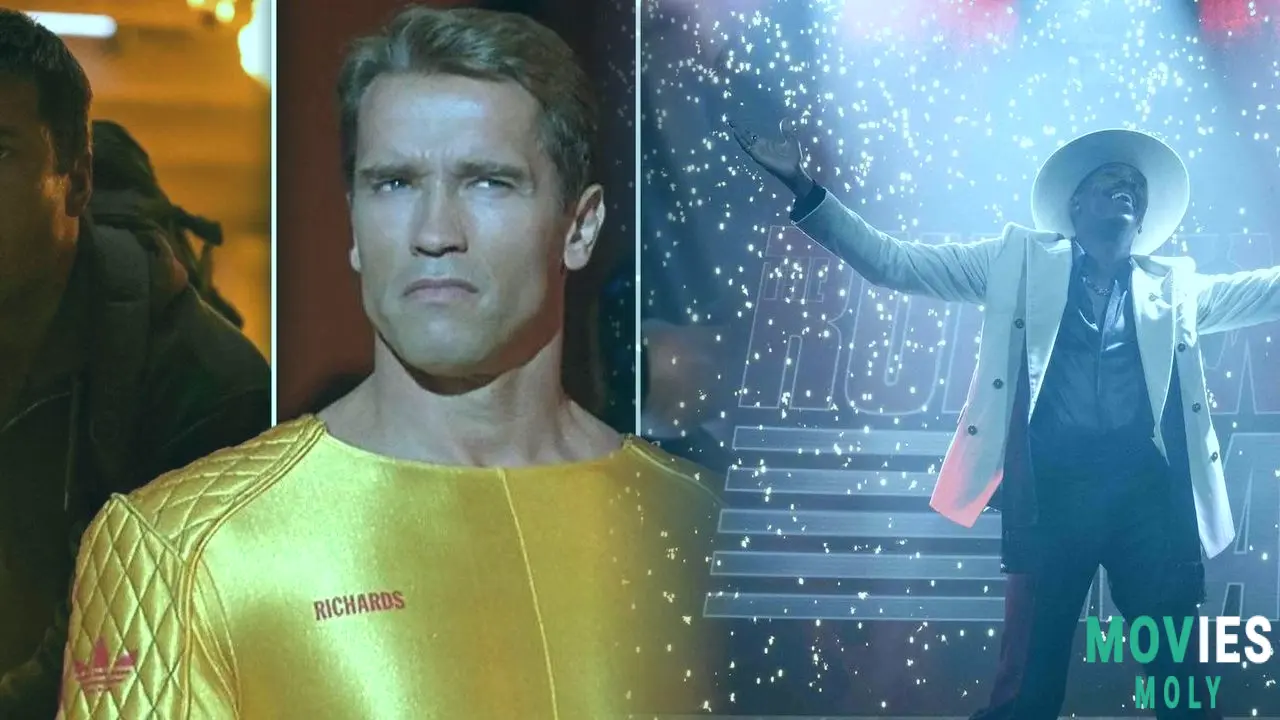
While the Arnold cameo is a direct nod, Wright’s film also peppers in more subtle (and not-so-subtle) references to the 1987 movie. The original film's "Running Man" game show featured a WWE-style cage match within a cordoned-off, decaying urban arena. The written version and Wright's film, however, portray a reality show where contestants are hunted in the regular world, often by ordinary citizens. This core difference allows Wright to explore King's themes of corporate fascism more deeply, contrasting with the '87 film's more polluted, industrial, and overtly militant authoritarian regime.
Yet, the 'pomp and circumstance' of the TV show side of things remains similar. The 1987 movie famously had big hair, "The Price is Right" audience segments, and extended dance sequences. Wright’s version, while eschewing some of the '80s specifics, retains a bizarre "cyber-cabaret" styling, with Colman Domingo's Bobby T channeling a carny ringmaster. Even the dancer outfits and hairstyles subtly harken back to the '87 film's idea of a distant future. Source: [Rick Stevenson, "The Running Man's Arnold Schwarzenegger 'Cameo' Isn't The Only Reference To The Original", November 14, 2025].
One iconic visual recreation directly ties the two films: the contestants' launch into the arena. In the original, they're sent in rocket sleds down winding tubes. Wright's film recreates this memorable shot with Glen Powell's Ben Richards and other runners loaded into tubs and jettisoned from the soundstage to the basement floor. It's less a roller coaster and more a drop tower in terms of physics, but the visual callback is unmistakable. Source: [Rick Stevenson, "The Running Man's Arnold Schwarzenegger 'Cameo' Isn't The Only Reference To The Original", November 14, 2025]. Other less explicit references include Michael Cera's character using a water gun to electrocute Network goons, echoing the electric stalker Dynamo's demise in the 1987 film. Even the moral dilemma of Richards refusing to kill a defeated hunter, only for the villain to return and insist upon their death, appears in both cinematic versions.
A Final Act Shared: Movies Over Manuscript
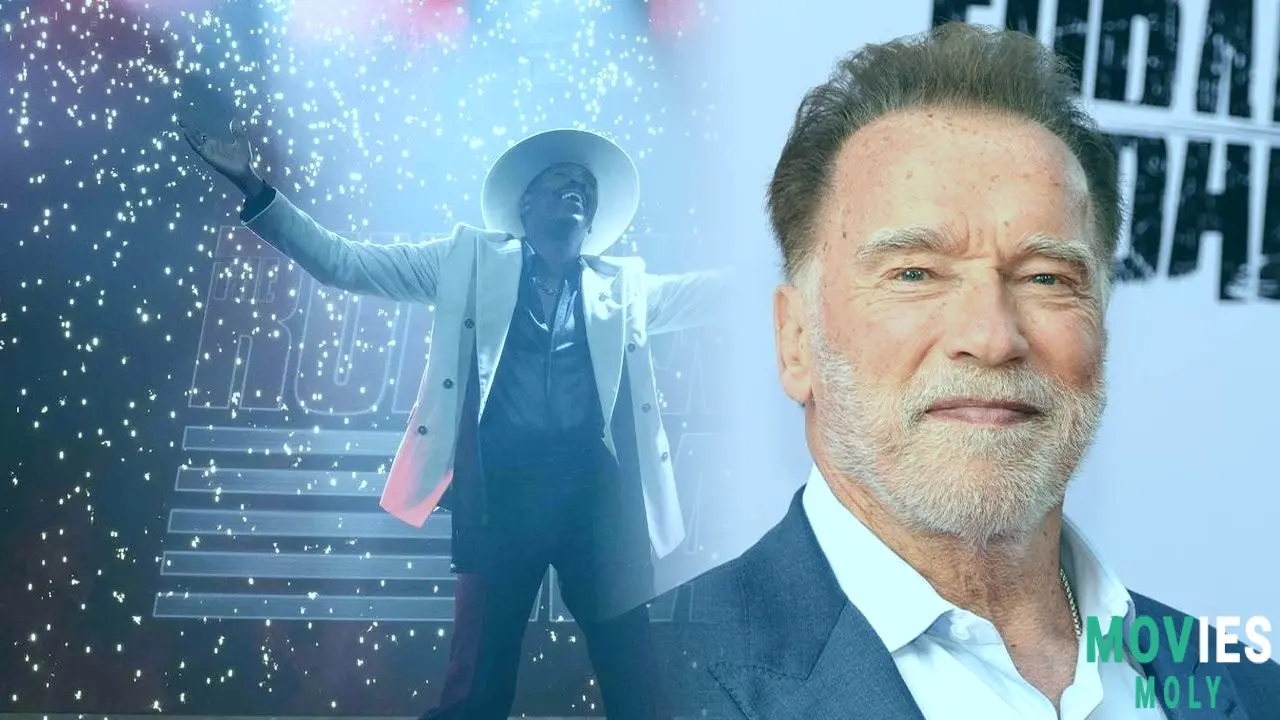
While Wright's film generally leans into King's novel, it significantly diverges in the final act, surprisingly aligning more with the 1987 movie than the book. In King's novel, Ben Richards pilots a hijacked jet directly into network boss Dan Killian's office, resulting in both their deaths – a bleak, definitive end. The 2025 film, however, mirrors the 1987 ending: Ben storms the "Running Man" soundstage with armed militants and exacts violent vengeance on Killian in person. Wright's version adds a twist, revealing Ben ejects and survives, going on to become a key player in the armed resistance against the Network. Source: [Rick Stevenson, "The Running Man's Arnold Schwarzenegger 'Cameo' Isn't The Only Reference To The Original", November 14, 2025].
This choice allows for a more active, heroic resolution, aligning with traditional action film narratives rather than the novel's nihilistic conclusion. The original film, despite its camp, at least provided some background for the armed insurrection Ben eventually joins, whereas Wright "plays fast and loose with the finale, leaving the viewer to fill in the gaps." Source: [Rick Stevenson, "The Running Man's Arnold Schwarzenegger 'Cameo' Isn't The Only Reference To The Original", November 14, 2025].
The "Arnold Amendment": Real-World Parallels from a Fictional Joke
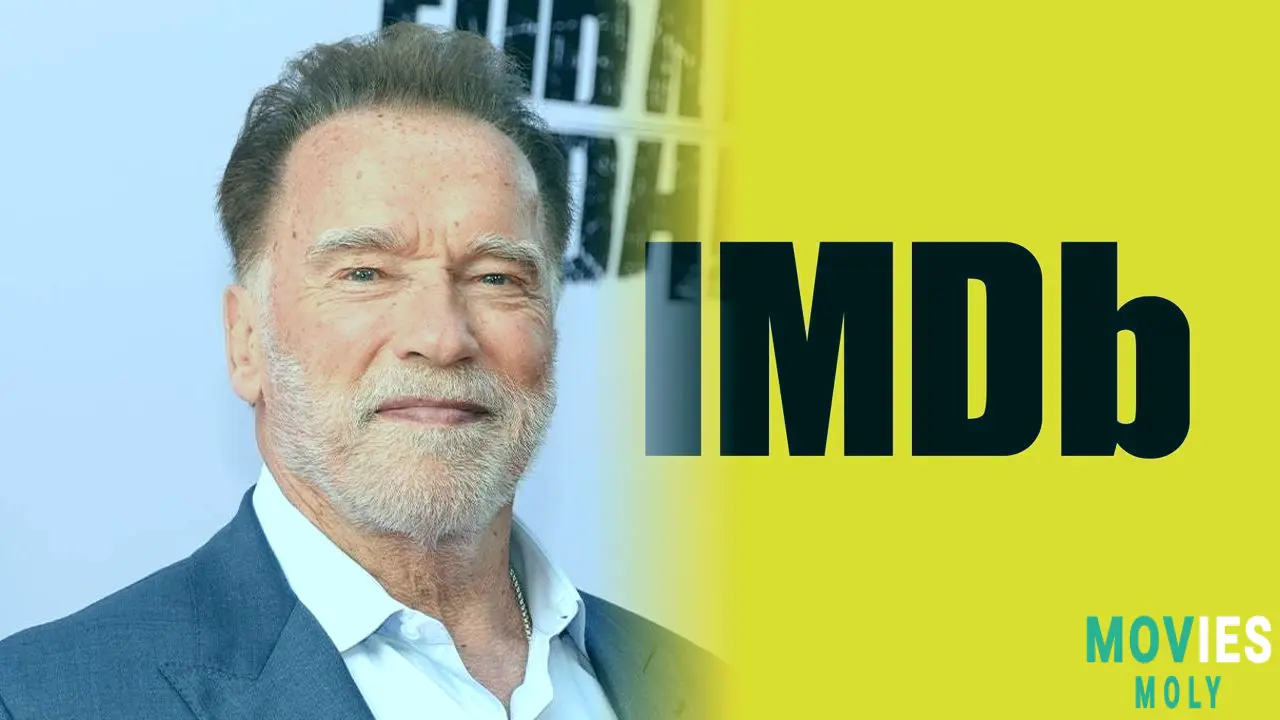
The Demolition Man joke about "President Schwarzenegger" and Wright's decision to incorporate it into The Running Man as an "alternate reality" isn't entirely without real-world resonance. In 2003, Senator Orrin Hatch tried to introduce an amendment to the US Constitution that would allow foreign-born citizens to run for president. This proposed change, often dubbed the "Arnold Amendment," was directly inspired by Schwarzenegger's popularity and his real-life inability to run for the presidency due to his Austrian birth. Source: [FandomWire, "How Demolition Man Envisioned the 2003 Equal Opportunity to Govern Amendment", November 14, 2025].
Hatch argued that "scores of foreign-born men and women who have risked their lives defending the freedoms and liberties of this great nation remain ineligible for the Office of President." Source: [FandomWire, "How Demolition Man Envisioned the 2003 Equal Opportunity to Govern Amendment", November 14, 2025]. While the bill ultimately failed to gain the necessary support to become a constitutional amendment, it highlights how a seemingly throwaway joke in a 1993 sci-fi film could spark a real political debate. It's a fascinating example of how pop culture can inadvertently influence real-world discussions about governance and citizenship.
Counterpoints: Balancing Fan Expectations and Creative Freedom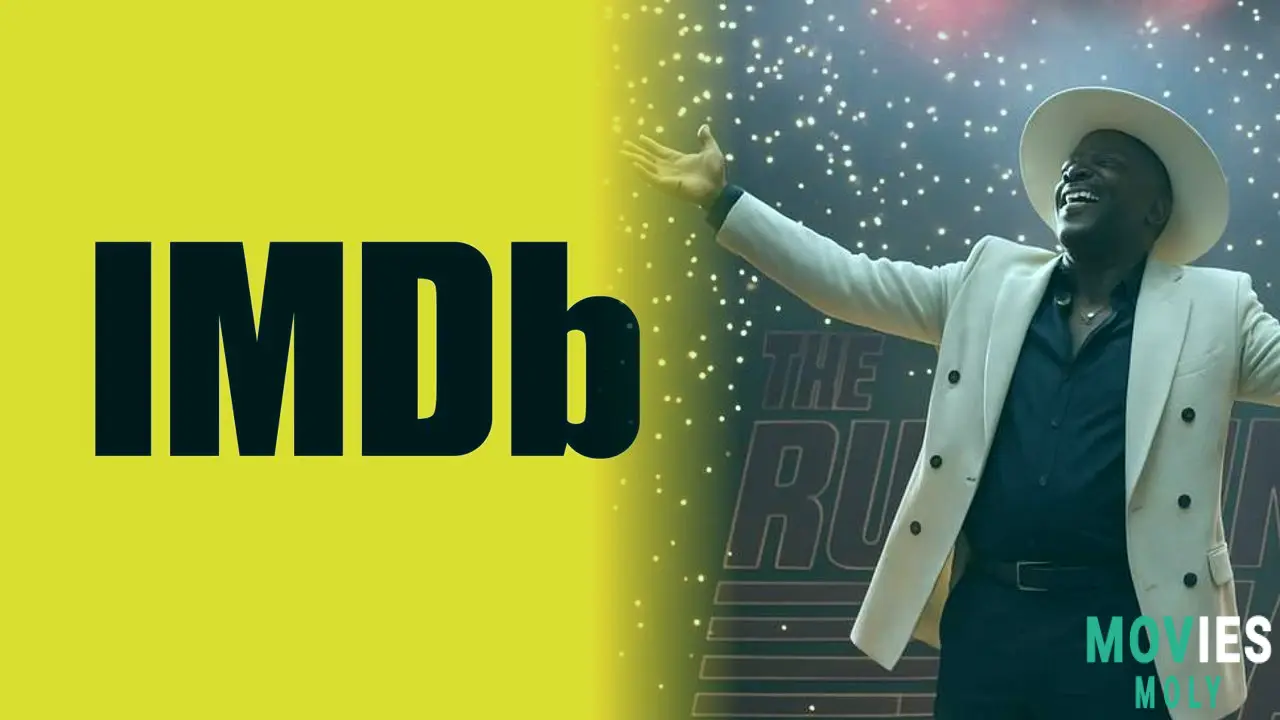
Despite Wright's clear intentions, some viewers might find themselves on either side of the adaptation fence. On one hand, Wright's commitment to King's original novel will certainly please literary purists who felt the 1987 film strayed too far. His focus on corporate fascism and the "regular world" hunt is a stark contrast to the '87 film's more overt, gladiatorial spectacle. However, this dedication to the novel also means a significant departure from the '87 film's unique, over-the-top campiness and '80s aesthetic. Fans who adore the original for its deliberate cheese, flamboyant stalkers, and theatrical violence might find Wright's more grounded, albeit still stylistic, approach a limitation, potentially missing the specific brand of action-comedy that defined Schwarzenegger's version.
Another potential counterpoint lies in the ending. While the new film's conclusion aligns with the '87 movie in its direct confrontation with Killian, Wright's choice to have Ben survive and join a resistance movement, while offering a more satisfying hero arc, could be seen as softening King's original, bleak message. The book's ending—where Ben sacrifices himself to make a final, devastating statement—is a powerful, uncompromising commentary on the dystopian system. By choosing a more "heroic" survival, Wright, perhaps unintentionally, trades some of the novel's raw, revolutionary anger for a more traditional, optimistic action movie resolution, which some might view as a compromise of the source material's core themes.
An Everyday Encounter with Cinematic Easter EggsExample: Imagine a Friday night, Sarah and her friends are at the cinema, hyped for Edgar Wright's The Running Man. Early in the film, the new "President Schwarzenegger" $100 bill flashes on screen. Sarah, a huge fan of both Arnie and obscure sci-fi facts, immediately nudges her friend Mark, who's still munching popcorn, "Did you see that?! Arnold on the hundred! It's a Demolition Man reference!" Mark, initially skeptical, later researches it, connecting the dots between Wright's interview, the 1987 movie, and the historical "Arnold Amendment." This shared moment of discovery, sparked by a quick cinematic Easter egg, turns into a fun deep-dive discussion, highlighting how these layered references can enrich the viewing experience and connect different generations of film buffs.
Final Takeaways for Running Man Fans- Embrace Both Worlds: Edgar Wright's The Running Man offers a fresh, book-faithful adaptation, but don't forget the '87 film. Both can exist and be enjoyed for their unique takes.
- Keep an Eye Out for Details: The new movie is packed with clever homages, from character interactions to specific visual recreations. Watching with an awareness of the original will enhance your viewing pleasure.
- Understand the Cameo's Layers: Arnold Schwarzenegger's appearance on the "New Dollars" is more than just a fun nod; it's a bridge between cinematic universes (The Running Man, Demolition Man) and even reflects real-world political discussions.
- Appreciate Wright's Craft: The director meticulously blended faithfulness to King's novel with a loving, respectful tribute to the 1987 movie, proving that remakes can be original and reverent at the same time.
Q: When did Edgar Wright's The Running Man release? A: The movie was released in most theaters on November 14, 2025. Source: [Popverse, "What Arnold Schwarzenegger thinks of his cameo in the Running Man remake, according to writer/director Edgar Wright", November 06, 2025].
Q: How long is the new The Running Man movie? A: The runtime for Edgar Wright's The Running Man is 2 hours and 13 minutes. Source: [FandomWire, "What Role Does Arnold Schwarzenegger Play in The Running Man Remake?", November 14, 2025].
Q: Who are the main stars in Edgar Wright's The Running Man? A: The cast includes Glen Powell as Ben Richards, along with William H. Macy, Lee Pace, Michael Cera, Emilia Jones, Daniel Ezra, Jayme Lawson, Colman Domingo, and Josh Brolin. Source: [FandomWire, "What Role Does Arnold Schwarzenegger Play in The Running Man Remake?", November 14, 2025].
Q: What is the IMDb score for the new The Running Man? A: The new film holds an IMDb score of 6.8/10. Source: [FandomWire, "What Role Does Arnold Schwarzenegger Play in The Running Man Remake?", November 14, 2025].
Sources- Stevenson, Rick. "The Running Man's Arnold Schwarzenegger 'Cameo' Isn't The Only Reference To The Original." Nov. 14, 2025.
- George, Joe. "The Running Man's Arnold Schwarzenegger 'Cameo' Isn't The Only Reference To The Original." Nov. 14, 2025.
- FandomWire. "Edgar Wright explains Arnold Schwarzenegger's cameo in The Running Man." Nov. 13, 2025.
- Popverse. "What Arnold Schwarzenegger thinks of his cameo in the Running Man remake, according to writer/director Edgar Wright." Nov. 06, 2025.
- FandomWire. "What Role Does Arnold Schwarzenegger Play in The Running Man Remake?" Nov. 14, 2025.
- FandomWire. "How Demolition Man Envisioned the 2003 Equal Opportunity to Govern Amendment." Nov. 14, 2025.
- The News Digital. "Arnold Schwarzenegger shares his honest reaction to ‘Running Man’ remake." Nov. 09, 2025.

